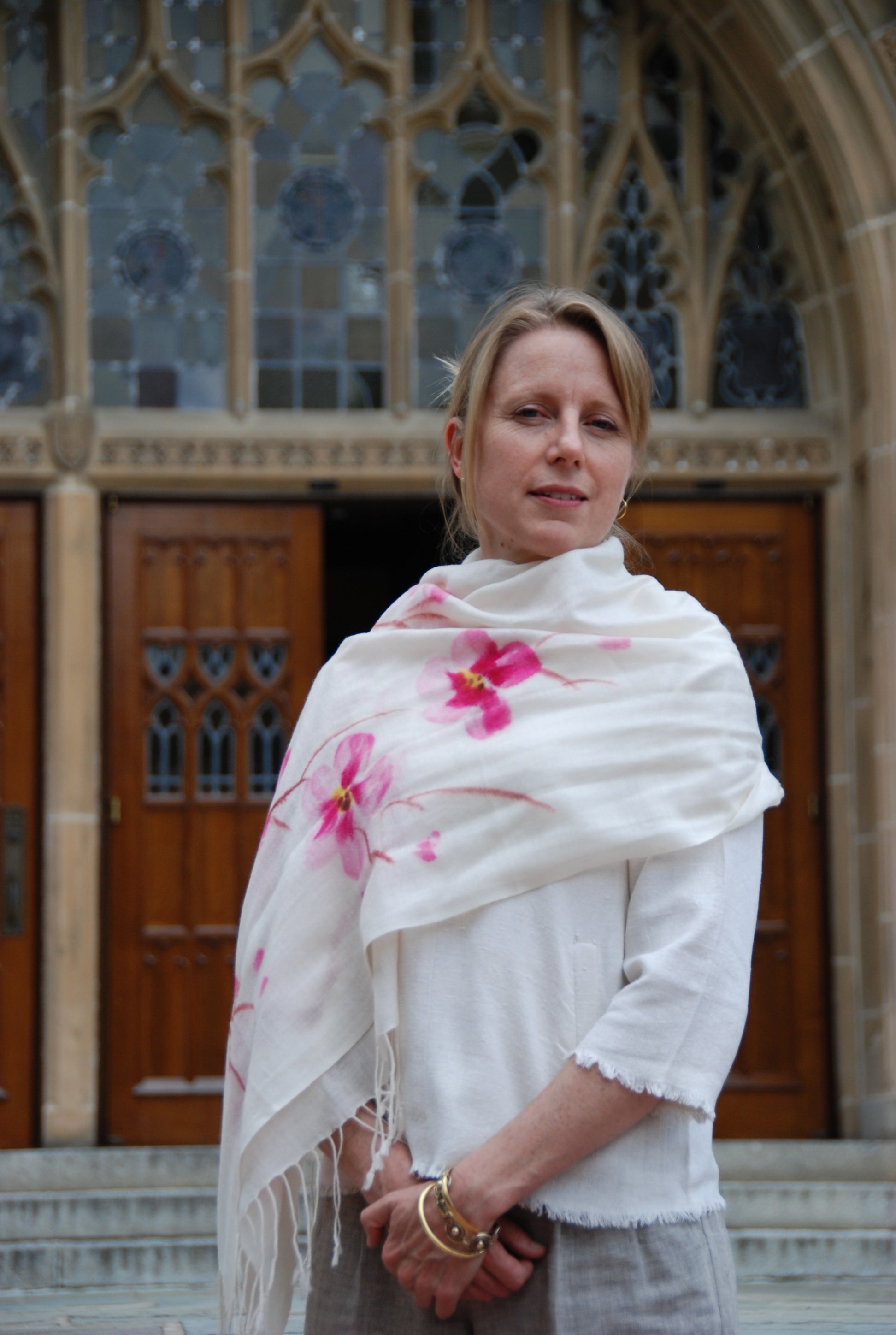
Professor Rochelle Davis’ extensive career of scholarship on the Middle East will enter a new phase this summer, with Davis set to become Director of the SFS Center for Contemporary Arab Studies Studies (CCAS). Davis, an associate professor of anthropology and a 12-year veteran of CCAS, will take over for Professor Osama W. Abi-Mershed after his 6-year stint as director as of July 1, 2017. Davis previously served as Academic Director of the Master’s in Arab Studies (MAAS) program.
“We teach amazing MA students and BSFS Certificate students, and I’m very excited to work with them and create new opportunities for them to be part of the larger work of CCAS and SFS,” Davis said.
CCAS faces a number of opportunities and challenges that Davis looks forward to diving into as she settles into her new role this summer.
“We have a K-12 outreach program that works with teachers in local schools and community colleges, a public events program, and a growing social media and web presence where we showcase much of the knowledge production happening at CCAS, from student and faculty publications to curriculum units to videos of our public lectures,” she said. “I see my role as continuing to grow these educational programs and offer students more learning opportunities inside and outside the classroom.”
Davis must also face a changing landscape for academic funding. The potential elimination of the Department of Education Title VI grant, which funds scholarships and language study for CCAS and other centers at Georgetown, is an immediate concern for Davis.
“President Trump’s proposed 2018 budget eliminates Title VI funding across the board (along with other programs relevant to what we do),” she said. “So, in addition to advocating for the importance of these programs to the education of our students, we will be looking for partnerships and grants to make sure that our students and other constituents can continue to learn and debate about the Middle East.”
Looking further ahead, Davis expects to work with faculty and students to maintain a productive and updated atmosphere across CCAS’s academic and research programs. Founded in 1975, CCAS offers both its flagship MA in Arab Studies (MAAS) program and an undergraduate certificate program alongside its research efforts.
“Our program gives them both knowledge and skills,” Davis said of MAAS. “Their fluency in Arabic makes them a rare breed among US graduates, and by the time they graduate they have had classes with professors, practitioners, and ambassadors, thus gaining a well-rounded approach to regional knowledge as well as analytical methods.”
[Our students] emerge confident and capable of jumping into things without hesitation, and able to take on the challenges of the global market.
Davis also noted that CCAS offers all the benefits of placement within Georgetown and Washington, D.C., an advantage seen in research and engagement opportunities.
“Faculty scholarship is enriched by the wealth of colleagues with whom they collaborate in comparative and interdisciplinary ways. Through our colleagues and our location in DC, our work thus gains greater relevance inside and outside of the academy,” she said. “And this makes both our teaching and our students’ educational experiences richer, more applicable to the present and the future. It also exposes our students to the most critical issues of the day and to a variety of approaches for addressing them, making our students well-positioned for life after graduation.”
Personally, Davis noted that her attraction to CCAS was driven by the diverse array of experiences it brought together.
“I’ve been at Georgetown for 12 years now, and reconnecting with the students I have taught over the years (and our earlier graduates) is thrilling and inspiring,” she said. “Among our alums we have human rights advocates, journalists, diplomats all over the world, intelligence analysts, humanitarian aid workers, professors, teachers, business and finance gurus, lawyers, and more.”
Her interest in the mission of CCAS is also bolstered by personal academic experience. Time spent abroad as an undergrad highlighted what she now sees as critical elements of impactful education.
“These experiences showed me the importance of learning about subjects and issues from people who live them and the places where they are happening, and how myopic we are when we only listen to ourselves talk about faraway places,” Davis said. “Georgetown and CCAS also breakthrough that myopia by pushing our students to learn languages and travel abroad, and to learn from different disciplinary traditions.”
With her extensive perspective on both Arab Studies as a discipline and Georgetown as an institution, Davis most looks forward to continuing the tradition of excellence at CCAS that supports students and continues to engage with the community around it.
“Ultimately, our priorities are to continue to graduate excellent students, to provide faculty with the support they need to be top-notch scholars and teachers, to serve our non-GU communities with programming that helps them do their work, and for all of these things to be interconnected and to build on one another,” she said.